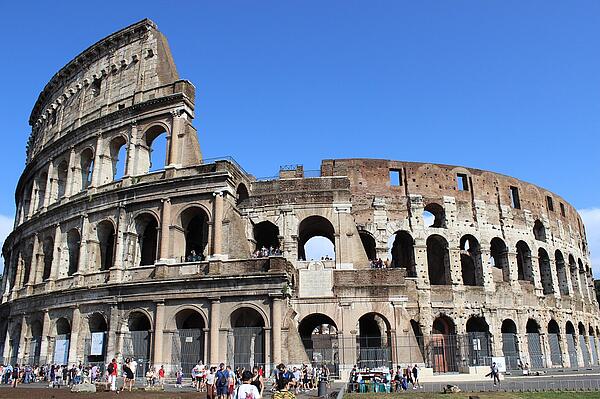The Roman Empire
The Roman Empire would have covered most of what is now Western Europe, including England and Wales, Spain, France, Greece, the Middle East and the North African coast. Each territory that became conquered by the Roman Army would have been made to embrace a Roman way of life.
In the early years of the Empire, its denizens lived in fear of their powerful neighbours from Carthage. Carthaginians were famous around the Mediterranean as merchants and travelers, while the Romans perceived them as rivals for their expansion into trading.
It was nearly inevitable, then, that in 264 BC the two nations came to blows. After a time that spanned three distinct conflicts that lasted the best part of 100 years - known today as the Punic Wars - the Romans finally defeated the Carthaginians. The Carthaginians won several battles across the wars, and it was only through a slow build-up of power that Rome’s armies became strong enough to capture Carthage. The city and all of the signs pointing to it were burned and destroyed as a symbol of the fact that Carthage’s influence was gone forever.
Following the fall of Carthage, Rome became the most powerful state in the Mediterranean, with their victory providing a huge opportunity to consolidate its power and expand the borders of its Empire.
At the same time, the Romans also wanted to focus on the conquering of lands further away from home that held the promise of even more wealth. Rome turned its eye instead towards western Europe, and sent its armies to conquer it.

At the height of its power in AD 150, Rome controlled the greatest and largest empire ever seen in Europe. Rather than suffering, the countries under Rome’s rule benefited greatly from the conquest as a modern way of life was established there.This included the construction of public baths, roads, water networks, housing and more, many ages ahead of the technology they already had. When the Romans eventually returned home, however, these advances all fell into disrepair.
Though the enormous scale of the Roman empire was alone impressive, its unmanageable size became a considerable reason for the nation’s collapse of power. They found maintaining control of all of its territories difficult, while it was hard to keep its armies supplied and communications up-to-date across longer and longer distances.
All in all, the Roman army were responsible for both the success and eventually the downfall of Rome’s empire.
See also: The Fall of The Roman Empire
MLA Citation/Reference
"The Roman Empire". HistoryLearning.com. 2026. Web.
